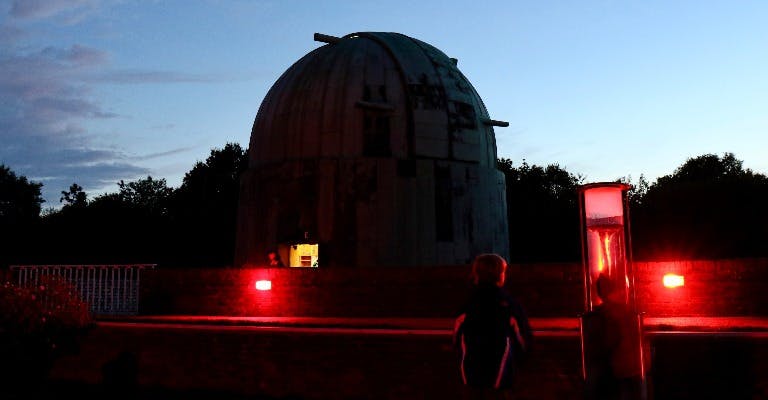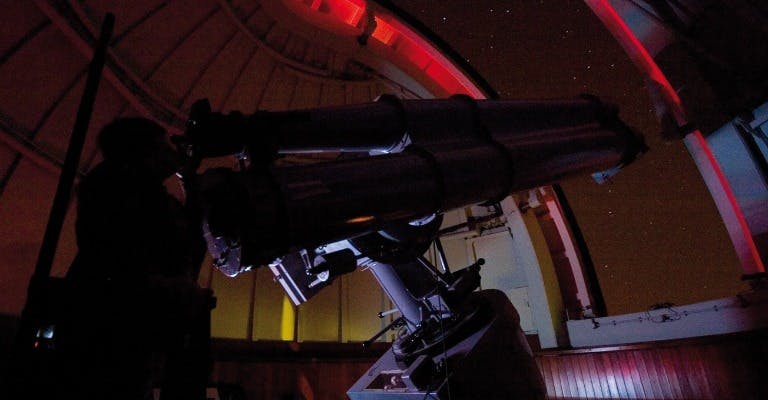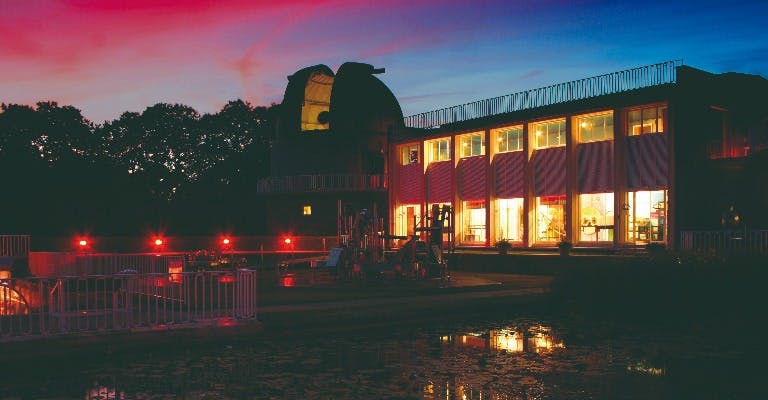
Big Telescopes for Small Astronomers
Grab your torch, gather family & friends and join us for an evening of discovery and space exploration. These events are suitable for all ages – with a family friendly atmosphere and plenty of fun to be had! Our team will show you the stars through our historic telescopes (weather permitting) and provide an immersive planetarium experience. Event tickets include a warm drink and a biscuit for children, and a hot drink for the grown ups.


Stargazing Evenings 2026
Stargazing Evenings at the Observatory are the best way to experience the natural wonders of the night sky. It may be the moon or the planets or it may be deeper sky objects; looking through a telescope is awe inspiring! Our astronomy team will guide your through the stars using our historic telescopes – or if the weather is poor, we’ll provide a unique planetarium experience, talks on the night sky and the opportunity to chat to astronomy experts. This event makes the perfect gift experience for someone special.


Sparkling Stars
Enjoy an evening looking up at the night’s sky with a glass of English sparkling wine from a local vineyard. Our astronomy team will guide your through the stars. This evening includes a unique planetarium experience and the opportunity to chat to astronomy experts. This event makes the perfect gift experience for someone special.


